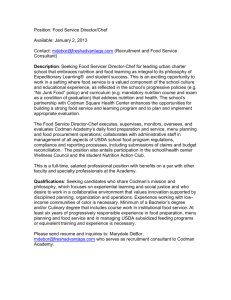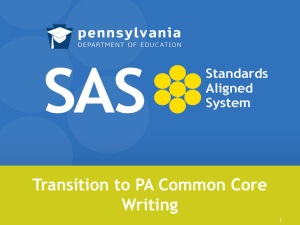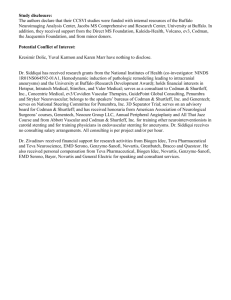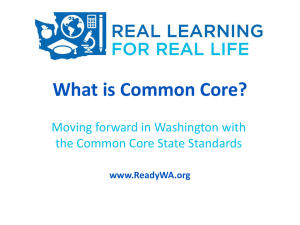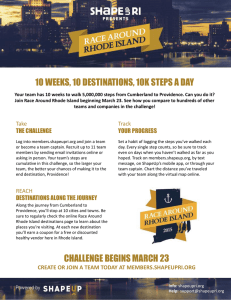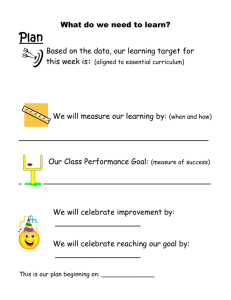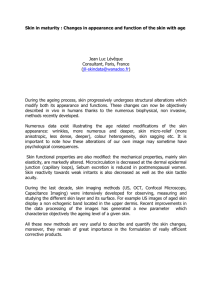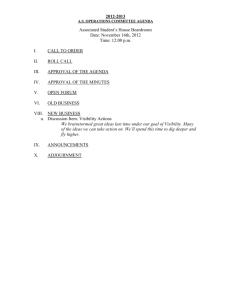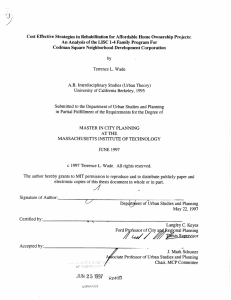Agenda
advertisement
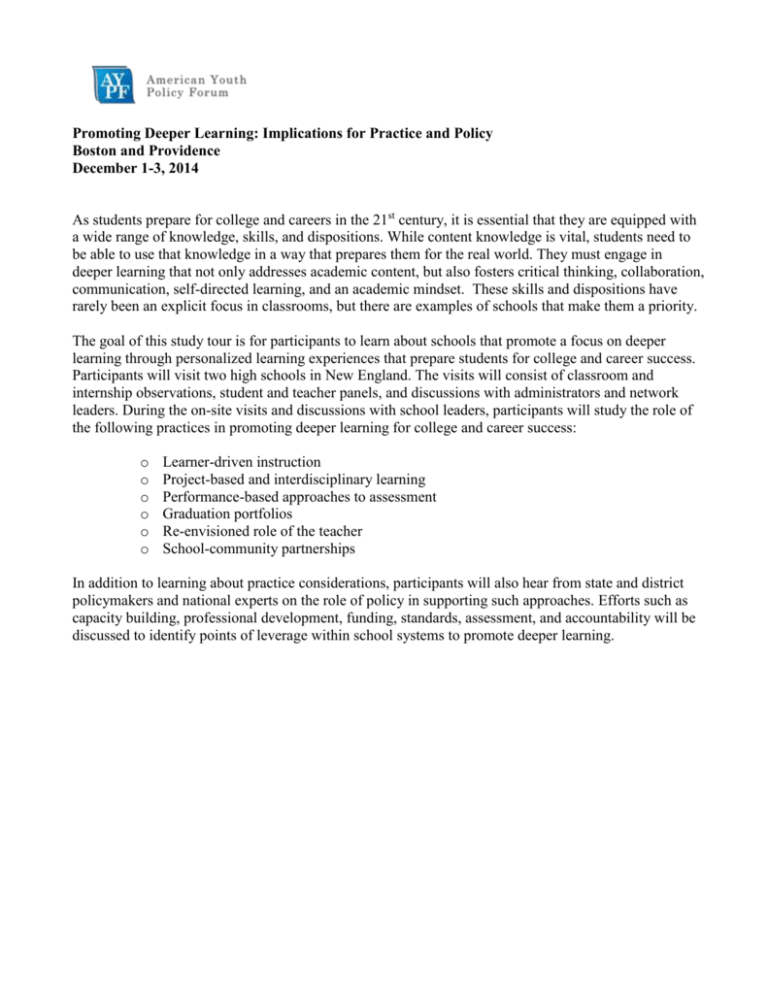
Promoting Deeper Learning: Implications for Practice and Policy Boston and Providence December 1-3, 2014 As students prepare for college and careers in the 21st century, it is essential that they are equipped with a wide range of knowledge, skills, and dispositions. While content knowledge is vital, students need to be able to use that knowledge in a way that prepares them for the real world. They must engage in deeper learning that not only addresses academic content, but also fosters critical thinking, collaboration, communication, self-directed learning, and an academic mindset. These skills and dispositions have rarely been an explicit focus in classrooms, but there are examples of schools that make them a priority. The goal of this study tour is for participants to learn about schools that promote a focus on deeper learning through personalized learning experiences that prepare students for college and career success. Participants will visit two high schools in New England. The visits will consist of classroom and internship observations, student and teacher panels, and discussions with administrators and network leaders. During the on-site visits and discussions with school leaders, participants will study the role of the following practices in promoting deeper learning for college and career success: o o o o o o Learner-driven instruction Project-based and interdisciplinary learning Performance-based approaches to assessment Graduation portfolios Re-envisioned role of the teacher School-community partnerships In addition to learning about practice considerations, participants will also hear from state and district policymakers and national experts on the role of policy in supporting such approaches. Efforts such as capacity building, professional development, funding, standards, assessment, and accountability will be discussed to identify points of leverage within school systems to promote deeper learning. Monday, December 1st Events on Monday to take place at the Hyatt Regency of Cambridge 575 Memorial Dr., Cambridge, Massachusetts 5:00-6:15pm Welcome and introduction, including presentation on Deeper Learning by Chris Shearer, Program Officer, Hewlett Foundation 6:30-8:30pm Dinner: Framing a research-based vision for student-centered learning Location: Hyatt Regency of Cambridge Rebecca Wolfe, Director, Students at the Center, Jobs for the Future, will highlight the research base for student-centered learning and share findings from Students at the Center research, which synthesizes and adapts for practice current research on key components of student-centered approaches to learning and deeper learning outcomes. The goal is to strengthen the ability of practitioners and policymakers to engage each student in acquiring the skills, knowledge, and expertise needed for success in college, career, and civic life. Tuesday, December 2nd 7:00-7:30am Breakfast and Introduction to Big Picture Learning Location: Hyatt Regency of Cambridge Andrew Frishman, Director of Program Development, Big Picture Learning will provide an overview of the Big Picture model, which focuses on designing innovative learning environments, researches and replicates new models for learning, and trains educators to serve as leaders in their schools and communities. He will highlight the assistance the network provides schools; and discuss what deeper learning looks like within their model. 7:30am Board Bus for Site Visit 9:00-2:30pm Site visit to The Met School (Big Picture), Providence, Rhode Island (see Appendix A) 325 Public St, Providence, RI 02905 Principal: Janet Villanueva-Williams Co-Director: Nancy Diaz-Bain Participants will observe a Big Picture school that promotes deeper learning through project-based learning, a career and technical education curriculum, realworld internships, individual learning plans, student advisories, and a college transition program. They will hear from a panel of students, teachers, leadership, and other support staff on practices to support the school’s work. 2:30-3:00pm Depart for Rhode Island Department of Education 3:15-4:15pm Discussion with Rhode Island Department of Education 255 Westminster Street, Providence, RI 02903 Room 501 Deborah Gist, Commissioner, Rhode Island Department of Education (RIDE) and other RIDE officials will discuss RIDE’s efforts to promote deeper learning through policy and technical assistance to districts and schools. 4:15-5:45pm Depart for hotel 6:30-9:00pm Dinner: Small group discussion on the role of state policy in supporting Deeper Learning Location: Hyatt Regency of Cambridge Ace Parsi, Project Director, and Robert Hull, Director, College, Career, and Civic Readiness, National Association of State Boards of Education and AYPF staff will facilitate a state policy discussion. Some questions to consider in advance, to prepare for this discussion include: What attributes/practices do you see in schools in your state that make them successful in preparing students with the knowledge, skills, and dispositions to succeed in college, career, and civic life? What attributes/practices do you see in schools in your state that prevent them from being successful in preparing students with the knowledge, skills, and dispositions to succeed in college, career, and civic life? What major policies are in place in your state that prescribe school-based practices as they relate to instruction and student performance? Wednesday, December 3rd 7:00-8:00am Breakfast and Introduction to the Expeditionary Learning School Model Location: Hyatt Regency of Cambridge Scott Hartl, President and CEO, Expeditionary Learning, will provide an overview of Expeditionary Learning, highlight resources and assistance the network provides schools, and discuss what deeper learning looks like within their model. 8:00am Board Bus for Site Visit 8:30-11:30am Site visit to Codman Academy Charter School (see Appendix B) 637 Washington St, Dorchester, MA Principal: Thabiti Brown Executive Director: Meg Campbell 11:30-12:15pm Participants will observe a school that promotes deeper learning through personalized and differentiated supports via student advisories, project-based learning, student work portfolios, performance-based assessment, student voice and leadership opportunities, family engagement, strong relationships, and a culture of teacher collaboration. They will hear from a panel of students, teachers, leadership, and other support staff on practices to support the school’s work. Conversation with Matthew Malone, Massachusetts Secretary of Education Secretary Malone will discuss efforts in Massachusetts to promote deeper learning through promotion of local innovation and alignment of state-level agencies. 12:15-12:45pm Lunch: Final debrief and summary Study tour participants will have an opportunity to reflect on their learning and implications for their work going forward. Location: Codman Academy 1:00pm Board Bus for Boston Airport Appendix A The Met School, Providence, Rhode Island The MET is a network of six small, public high schools located in Providence and Newport, Rhode Island. With high standards and strong family engagement, the MET’s individualized learning approach has proven successful in unlocking students’ passion for learning. The MET empowers its students to take charge of their learning, to become responsible citizens and life-long learners. The hallmarks of a MET education include internships, individual learning plans, advisory, and a breakthrough college transition program. Advisors work with mentors, parents and students to build a personalized curriculum around the students’ interests, searching out professionals in the community to pursue those interests in the realworld. Once at a site, students develop a rigorous project that they can work on with their mentor and back at school with their advisor. These projects become the foundation for the student’s learning plan and provide opportunities for the student to explore and master content, skills, and reasoning. The MET is the flagship school of Big Picture Learning, a model for 100 schools across the country and around the world. It is the leader in school reform and is consistently identified by a sweeping range of education leaders as one of the most effective models in the country. Outcomes: Since its first graduating class in 2000, the MET has maintained a 98% college acceptance rate. In 2006, 78% of MET alumni who enrolled in college were still in college or had graduated. Furthermore, in a statewide student survey, MET students ranked their school significantly higher on a number of indicators, including rigor, relevance, relationships, safety, and respectful learning environment. Appendix B Codman Academy Charter School Codman Academy Charter Public School received its charter from the Massachusetts Department of Education on February 27, 2001. They opened in September 2001 on the site of one of our primary partners, Codman Square Health Center with a founding class of 32 ninth graders. CACPS is Dorchester’s first charter high school. The school was created in response to a strong community need for a college preparatory, small high school in the Codman Square/Four Corners area. Currently, most of Codman's 187 students, chosen by lottery, live in Dorchester, Roxbury, or Mattapan. Students attend school six days a week, with an extended day Mondays through Fridays. 100% of Codman's graduates have been accepted to college. 70% of alumni are enrolled in college or have graduated. The Codman program is holistic, addressing students' physical and mental health needs along with academics. Based upon Expeditionary Learning principles, the curriculum stresses depth over breadth of content and fieldwork designed to reinforce classroom learning. Strong emphases on the arts and social justice issues are cornerstones of its curriculum. Students engage in portfolios, Saturday classes to engage in project-based learning, performances, internships, and even international travel.
